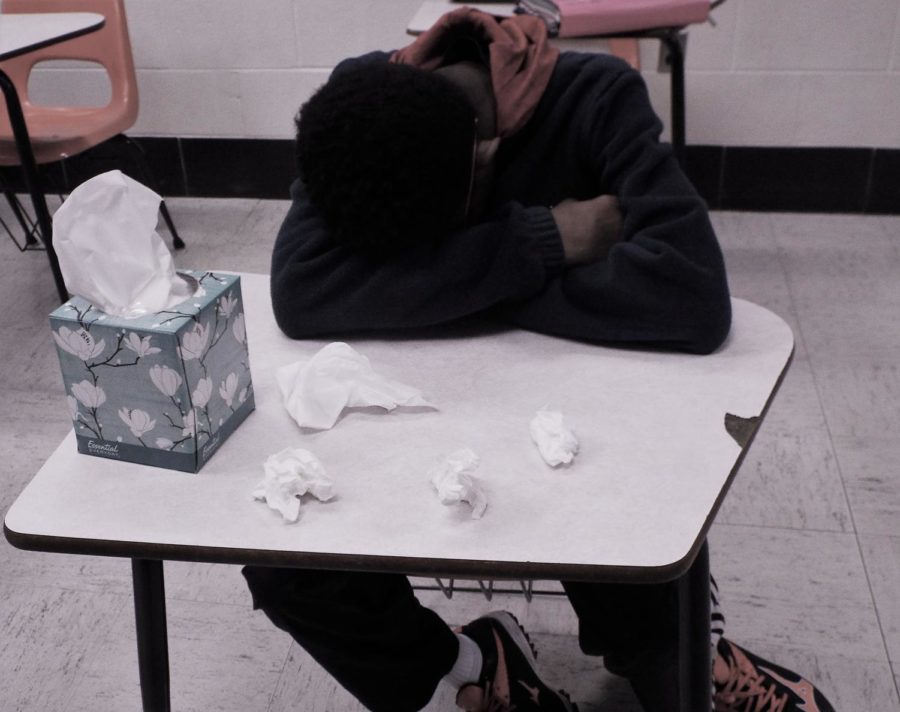Spring Allergies: What’s the Buzz?
Seasonal allergies make it difficult for students at NAHS to stay alert in school.
May 1, 2019
Sneezing more than usual? Eyes becoming more swollen, or feeling congested? Join the club. Symptoms like these are most likely caused by seasonal allergies, a result of exposure to airborne substances like pollen that appear only during certain times of the year.
The biggest and most well-known stimulator of spring allergies is pollen. Pollen can be found through a variety of grasses, weeds, and trees. Tiny specs of the pollen are released into the air to fertilize other plants.
The human body’s immune system sees the pollen as a threat and releases antibodies, a chemical called histamines, into the blood to attack the pollen. Elizabeth Bailey, a nurse practitioner at Allergy & Asthma Specialists in Blue Bell, explained how the histamines can trigger common symptom like a runny nose, itchy and teary red eyes, and continuous sneezing. “Also, genetic predisposition can affect someone more than another person“ Bailey said. “If mom had seasonal allergies, there is a greater percentage that it will genetically pass down to the kids.”
In order to prevent pollen and spring allergies in general, Bailey advises readers to “keep your windows closed. Air conditioning is the best. Another thing is when people come back inside from the outdoors, they should take a quick shower to get rid of the pollen out of their eyelashes, if not wear sunglasses.”
Other ways you can prepare for seasonal allergies is to use eye drops prior to going outside to prevent the common eye symptoms. Nasal spray can also help avert sinus congestion.
To prevent confusing seasonal allergies with a cold, people should watch out for symptoms that annually come. “Typically, if you have a cold, you don’t feel so good. You might have some fatigue or a low-grade fever,” said Bailey. “Although, if you have severe allergies, it can make you feel fatigue and uncomfortable, but there won’t be a fever.”
There may be no new super-pollens, but your allergies may be more severe than last year’s, and that’s because of the recent sunny weather. Tree pollen in Philadelphia has been particularly high. Although, there is no guarantee that the allergies will worsen, we also can’t predict if they will get better. “It varies from one year to the next,” said Bailey. “I can’t say it’s worse than last year, because it’s not the peak season, but many patients have been coming in. For about the last three to four weeks, it’s becoming really severe. Kids and their parents have major complaints about itchy eyes and congestion.”
Although there are ways to manage symptoms, allergies are not exactly curable. “That’s the hard thing, you can’t totally beat allergies. If someone feels irritated, they should take an over the counter medicine, like a claritin or zyrtec to relieve your discomfort.” If symptoms become too much too handle and interfere with daily life, you should alert your doctor, who can recommend you better preventive medication.
Spring allergies are a pain, but sometimes the right medicine can relieve your irritation. Bailey wants to remind readers, “Sometimes you can see pollen on the car’s windshield from your window, chances are that it could be a particularly bad day for pollen. Remember to take cover and protect yourself. Don’t let allergies get in your way of a good day.”




Britney • May 1, 2019 at 12:06 pm
So educative.